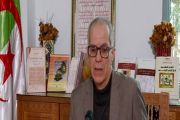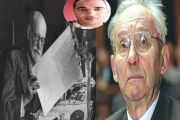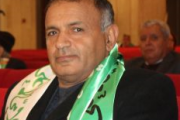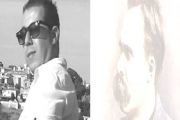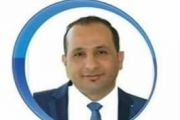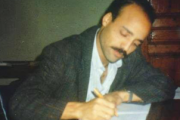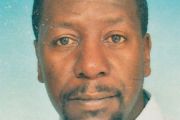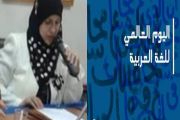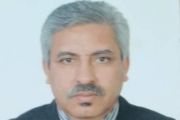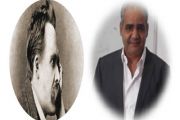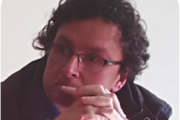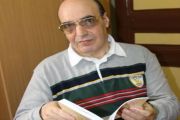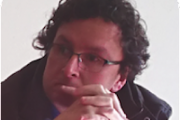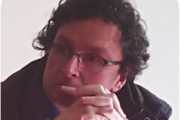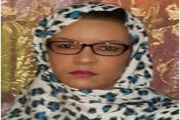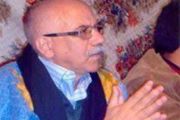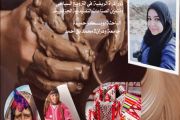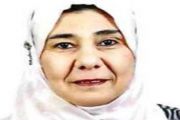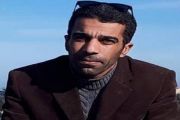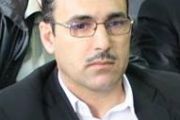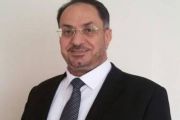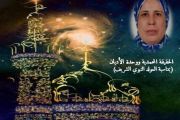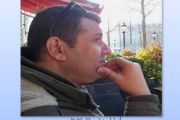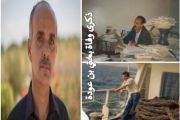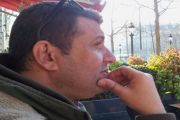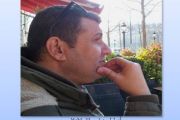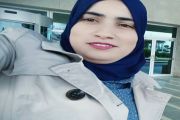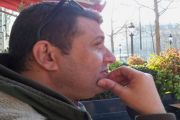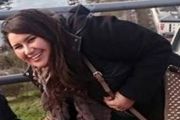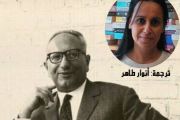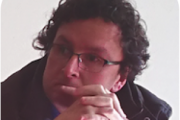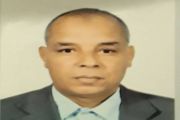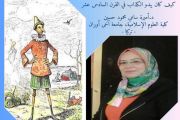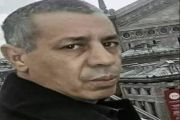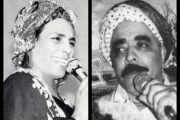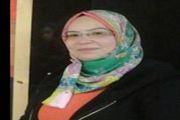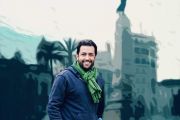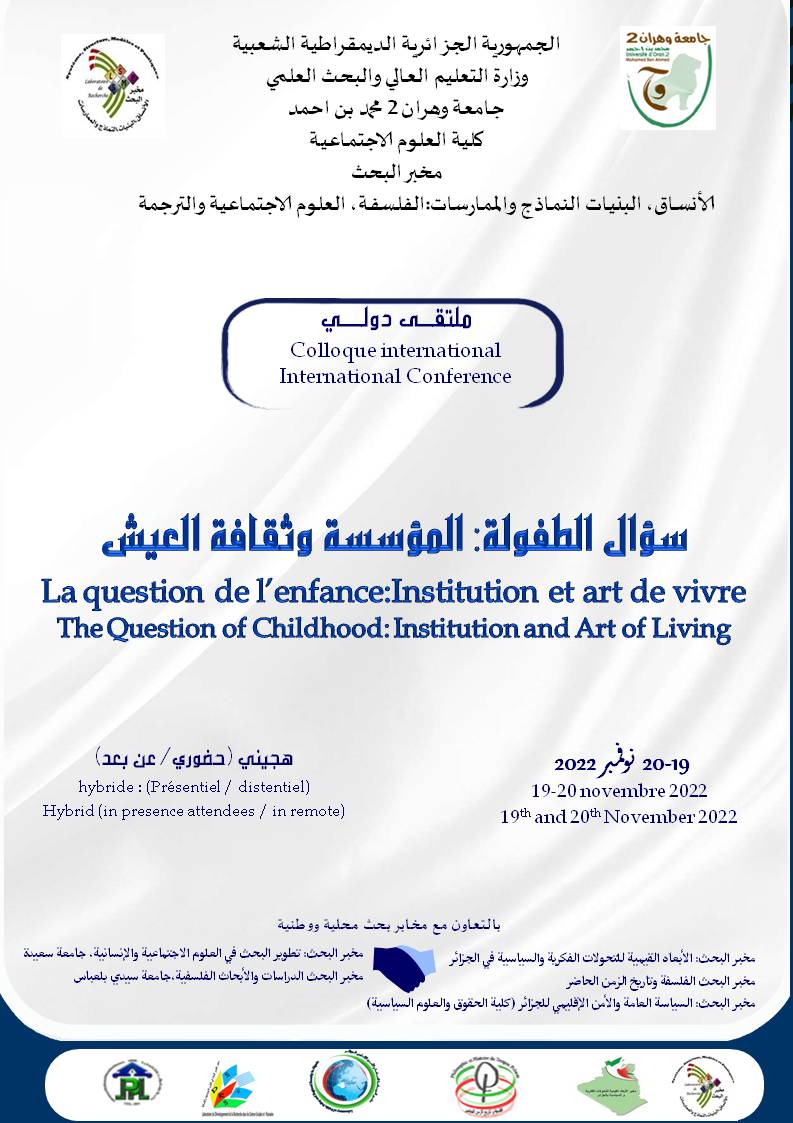
الملتقى الدولي: سؤال الطفولة: المؤسسة وثقافة العيش
فهرس المقال
ملتقـــى دولـــــي
Colloque international
International Conference
------------------------
سؤال الطفولة: المؤسسة وثقافة العيش
La question de l’enfance:Institution et art de vivre
The Question of Childhood: Institution and Art of Living
--------------------------
19 و 20 نوفمبر 2022
19-20 novembre 2022
19-20November 2022
----------------------------
الديباجة:
كم هي عجيبة مفارقة الطفولة! يستعجل الطفلُ أن يصير شابًا فكهلاً ليتخلص من ضعفه وتبعيته للكبار، ويتحرّر من عالم الممنوعات واللاممكنات، ويتمنى الرجل لو يعود إليها ليعيش البراءة بلعبها ومرحها... ولهذا، فقد شكلت الطفولة مادةً دسمةً في أدبيات المفكرين والمربين والعلماء. فهي ليست مجرّد مرحلة عابرة في حياة الإنسان، بل عالم من الأفكار والذكريات والمعتقدات والأحلام نعيشه أحيانا ونفكر فيه مرارا، ولكنّه يعيش بداخلنا باستمرار وينظم علاقتنا بالعالم الموضوعي.
وليست الطفولة، بالنسبة إلى الفيلسوف، موضوعاً كلاسيكيًا ينشغل به كما ينشغل بسؤال الحرية أو الوجود أو الأخلاق أو المعرفة، ومع ذلك، فإنّ هذه الموضوعات ليست ذات بالٍ إلاَّ من حيث ارتباطها بالإنسان. وكيف يُمكن مقاربة سؤال الإنسان نفسه إذا لم نضع في الحُسبان أنّ الطفولة، بكل معانيها، هي بداية هذا الإنسان؟ بل هي قد تحمل، بمعنى من المعاني، بصمة حياته كلّها، ألم يقل فرويد أن "حياة الإنسان إن هي إلا طفولة ممتدة" . ولهذا، فإن سؤال الطفولة ظلّ حاضرًا في المشهد الفلسفي وفي مجالات الفكر الأخرى، كعلم النفس وعلم الاجتماع والأدب والمسرح إلخ... وشكّل رهاناً تباعدت فيه الرؤى إلى حدّ التعارض. فبينما هي عند ديكارت مرحلة يجب الخروج منها وقطع الصلة بها، لأنّها مصدر للأحكام المسبقة التي تعيق المبادرة الفلسفية، وتحجب الحقيقة، وتمنع الوصول إليها، فإنَّها عند نيتشه رمز البدايات ومرحلة الفكر الحرّ الذي يبدع العالم والقيم. وبينما كانت الثقافة اليونانية والرومانية تَعُدُّ الطفل كائناً ناقصًا يجب "تحويله" ـ عن طريق التربية والتنشئة الاجتماعية ـ إلى "مواطن صالح" وإلاَّ صار عبئاً وجب التخلص منه، فإنَّ روسو قد حدّد موقع الطفولة في نقطة التمفصل بين الطبيعة والثقافة، وكان يرى في التربية تشويها لها وإفسادًا للطبيعة. فمهما تعارضت الآراء حول الطفولة، يكفيها أن تكون رمزاً لبراءة السؤال، ومن ثم انقياداً طوعياً، وبلا تكلّف، لنداء المعرفة ومتعة البحث. فما الطفولة سوى هذا الأفق الذي يحمل انتظاراتنا إلى أبعد نقطة من حياتنا ... ويصحّح مسارنا كلّما تعثرت خطانا وتبددت أحلامنا.
انطلاقاً من هذه المعطيات الأولية، وبمناسبة اليوم العالمي للفلسفة المتزامن مع اليوم العالمي للطفولة، ينظّم مجموعة من مخابر البحث ملتقى دوليًا في يومي: 19 و20 نوفمبر 2022، موضوعه: سؤال الطفولة: المؤسسة وثقافة العيش.
وقد حدّد للملتقى، أهدافاً، نصوغها في الشكل التالي:
-
-
-
- تحديد دلالات سؤال الطفولة، من خلال تناوله من طرف المنظومات المعرفية والسياقات الفكرية، قصد توضيح تباين التوجهات والمقاربات التي تناولت الموضوع.
- التأكيد على أنّ سؤال الطفولة كان حاضراً وما زال في البرامج التكوينية للطفل، من خلال المؤسسة في الجوانب المتعدّدة، التربوية والاجتماعية والاقتصادية.
- إبراز أهمية الأسئلة الجوهرية، التي يطرحها الطفل التي لها علاقة بكشف هويته، ضمن مجالات محيطه، وإدراكه لتنوّع المحيط الخارجي الذي يحتويه.
- معالجة جملة تحديّات الحياة المعاصرة، بما تحمله من جوانب ايجابية وأخرى سلبية، والتساؤل عن مدى تأثيرها في حياة الطفل، قصد التحكم في تجنب السلبي منها.
-
-
وللاشتغال على هذه الأهداف، نقترح على الباحثين، مجموعة من الاستفهامات، منها: ما موقع الطفولة في مختلف الفضاءات والمنظومات المعرفية، لاسيما منها الرقمية؟ كيف نتمثلها بالنظر إلى موروثنا الثقافي وما يفرضه عالمنا المهووس بالتقنية؟ هل تمّت إمكانية لانتشال براءة الطفولة وجمالها من عوالم موحشة حجبت عنا الأحاسيس الرقيقة والطباع المرهفة التي هي بداخل كلّ واحد منّا؟ وكيف يمكن للفلسفة، ومختلف القطاعات المعرفية الأخرى، أن تجبر الطفولة المتصدّعة وتعيد لها وجودها لتكتمل مراحل الإنسان الحياتية بأمن وأمان؟ أسئلة، تكاد لا تعرف توقفاً، لأنّ نهايتها، هي نهاية الكل.
ثم كيف يمكن للفلسفة ـ اليوم ـ أن تقارب عالم الطفولة؟ وما علاقة الطفولة بالقيم الاجتماعية الموجِّهة للتربية؟ فهل يجب على التربية أن تمنح مجالا أوسع للطفل ليعيش، حياة الأحلام ـ وربما الأوهام! ـ "الممتعة" من أجل نفسه وحسب، أم يجب الإسراع في نقله إلى عالم الحقيقة "المُرّة"؛ ليعيش، من أجل غيره، حياة المسؤولية والواجب والعمل والتضحية إلخ؟... وهل يجب أن ننظر إلى الطفل بوصفه "رجلا غير مكتمل" أم من حيث هو كائن ذو هوية مستقلة عما سيؤول إليه؟
لأجل تدبر هذه الأسئلة وغيرها ممّا قد يجدر طرحه في هذا المقام تمّ تحديد المحاور التالية كأرضية لهذه التساؤلات، مع إبقاء المجال مفتوحا لتناول محاور أخرى شريطة أن تكون مجاورة لها ومندرجة ضمن الإطار العام لموضوع الملتقى.
المحاور
المحور الأول :الطفولة والعلوم الإنسانية و الاجتماعية
-
-
-
- الطفولة ورهانات التحولات الاجتماعية
- الطفولة والمؤسسة الاجتماعية والاقتصادية.
- الطفولة والمنظومة التربوية والتعليمية.
-
-
المحور الثاني: الطفل والفلسفة
-
-
-
- المقاربات الفلسفية لسؤال الطفولة ( ضمن الفكر الإنساني في تطوّره عبر التاريخ).
- الطفل وتعليمية الفلسفة.
- فعل التفلسف لدى الأطفال ( تجارب عملية)
-
-
المحور الثالث : الطفولة وتحديات الحياة المعاصرة
-
-
-
- الطفولة والتشريعات القانونية.
- الطفولة ووسائل التواصل
- الطفولة المسعفة – تجارب ميدانية
-
-
المحور الرابع: الطفولة والعالم الرقمي.
-
-
-
- الطفولة والألعاب الالكترونية.
- الطفولة ووسائط التواصل الاجتماعي.
- الطفولة والتقنية المعاصرة
-
-
ترسل بطاقة المشاركة إلى أعضاء اللجنة حسب المحاور التالية
المحور الأول: الطفولة والعلوم الإنسانية و الاجتماعية : عنوان البريد الإلكتروني هذا محمي من روبوتات السبام. يجب عليك تفعيل الجافاسكربت لرؤيته.
المحور الثاني: الطفل والفلسفة: عنوان البريد الإلكتروني هذا محمي من روبوتات السبام. يجب عليك تفعيل الجافاسكربت لرؤيته.
المحور الثالث: الطفولة وتحديات الحياة المعاصرة : عنوان البريد الإلكتروني هذا محمي من روبوتات السبام. يجب عليك تفعيل الجافاسكربت لرؤيته.
المحور الرابع: الطفولة والعالم الرقمي : عنوان البريد الإلكتروني هذا محمي من روبوتات السبام. يجب عليك تفعيل الجافاسكربت لرؤيته.
ملاحظة: سيتم الرد خلال 72 ساعة من ارسال بطاقة المشاركة.
تحميل إستمارة المشاركة
Argumentaire :
L’enfance… N’est-ce pas là un paradoxe des plus fascinants ! Tout enfant est pressé de prendre de l’âge, de mûrir d’avantage, rêve du jour où il s’affranchira des interdits qu’on lui impose et des impossibilités qu’il croise. De la même manière, l’adulte n’a qu’un souhait, retrouver l’insouciance, la gaité et la naïveté de sa tendre enfance. C’est justement ce même paradoxe qui a tant fait réfléchir et fait noircir des volumes entiers, œuvres de philosophes et de chercheurs en sciences sociales et humaines. L’enfance ne se réduit pas à une phase transitoire de la vie des êtres, elle constitue plutôt un univers constitué d’idées, de croyances, de souvenirs, de rêves et de rêveries, qu’on intériorise et qui demeure enfoui au plus profond de nous, la vie durant. Pour le philosophe, l’enfance n’est pas un sujet classique au même titre que la liberté, l’existence, la morale ou bien encore la connaissance.Toutefois nous pouvons penser que ce qui relie tous ces objets à celui de notre réflexion, c’est que tous ne peuvent être traités en faisant abstraction du sujet, soit de l’Homme. Comment peut-on réfléchir autour de la question de l’être humain en passant sous silence le fait que l’enfance soit le « point de départ » de la vie de l’homme, là où tout commence ? N’est-ce pas Sigmund Freud qui a dit que la vie n’est que le prolongement de l’enfance ? C’est pour cette raison et pour bien d’autres encore que la question de l’enfance suscite un intérêt tout particulier pour le philosophe. Les spécialistes des sciences sociales et humaines, de leur part, ne demeurent pas insensibles à l’univers de l’enfant (Sociologie, psychologie, théâtre, etc.). Pour toutes ces disciplines, l’enfance peut paraitre comme un enjeu de la connaissance, centre de spéculations, engendrant des hypothèses et des pistes de réflexions, souvent contradictoires, entravant, par-là, le chemin qui permet d’atteindre la vérité dans sa forme absolue. Si elle est, pour Descartes, un état dont on s’efforce de s’affranchir, parce qu’elle est la source de toutes les idées préconçues entravant le chemin de la réflexion philosophique, elle est, au contraire, pour Nietzche la promesse d’une pensée libre douée de créativité. Dans les cultures romaine et grecque anciennes, l’enfant était considéré comme un « sous être » qu’il faudrait, en l’éduquant et en le socialisant, le transformer, à en faire un acteur bénéfique, contribuant à la vie de cité, soit un « citoyen », sinon, au cas contraire, il serait bon pour le bannissement. Jean-Jacques Rousseau estime pour sa part que l’enfant est ce qui relie la nature à la culture, il ira jusqu’à voir dans l’éducation une altération de ce qui est naturel. C’est pour dire l’importance qu’occupe la question de l’enfance, aussi naïve soit-elle, dans la réflexion des hommes. L’enfance n’est en fin de compte qu’un horizon, reflet de nos aspirations. Et si elle devait avoir une quelconque utilité, elle serait celle-ci : corriger notre parcours quand nous buttions parce que nous aurons arrêté de rêver.
C’est à partir de ces quelques intuitions que nous souhaitons, à l’occasion de la journée mondiale de la philosophie qui coïncide avec celle de l’enfance, lancer le débat en organisant, en partenariat avec des laboratoires de recherche, un colloque international les 19 et 20 novembre 2022 sous l’intitulé : « L’enfance en question : l’institution et la culture du vivre ensemble ».
Le colloque a pour but de :
-
- Cerner théoriquement la notion de l’enfance à travers l’exploration ce qui a été fait en matière de recherche ;
- Démontrer qu’en matière de programmes de formation la question de l’enfance a toujours été un point de focalisation
- Mettre en lumière le processus de formation de l’identité et ce à travers l’analyse scientifique (objective) de la subjectivité de l’enfant ;
- Traiter des défis de la vie contemporaine et de leurs impacts (autant positifs que négatifs) sur la vie de l’enfant ; et ce dans la visée d’absorber les effets les plus indésirables.
Pour ce faire, nous vous proposons d’essayer de réfléchir autour des questions suivantes :
Quelle place occupe l’enfant dans les espaces, plateformes et structures de la connaissance, l’univers numérique plus particulièrement ? Comment peut-on penser l’enfance en prenant en considération l’héritage culturel et le progrès technologique ?
Les axes :
1-L’enfance et les sciences sociales et humaines
L’enfance et les enjeux du changement social
L’enfance et les institutions socio-économiques
L’enfant dans les systèmes éducatifs
2-L’enfant dans les écrits philosophiques
Approche philosophique de l’enfance
L’enfance et les institutions économiques et sociales
L’enfance et le système éducatif
3-L’enfance et les enjeux de la vie contemporaine
L’enfant dans les textes de loi
L'enfance et les moyens de communication
L'enfance démunie (expériences pratiques).
4-L’enfant et la révolution numérique
Enfance et jeux électroniques.
Enfance et les réseaux sociaux.
Enfance et technologie contemporaine
La carte de participation est envoyée aux membres du comité selon les axes suivants
1-L’enfance et les sciences sociales et humaines : عنوان البريد الإلكتروني هذا محمي من روبوتات السبام. يجب عليك تفعيل الجافاسكربت لرؤيته.
2-L’enfant dans les écrits philosophiques : عنوان البريد الإلكتروني هذا محمي من روبوتات السبام. يجب عليك تفعيل الجافاسكربت لرؤيته.
3-L’enfance et les enjeux de la vie contemporaine : عنوان البريد الإلكتروني هذا محمي من روبوتات السبام. يجب عليك تفعيل الجافاسكربت لرؤيته.
4-L’enfant et la révolution numérique : عنوان البريد الإلكتروني هذا محمي من روبوتات السبام. يجب عليك تفعيل الجافاسكربت لرؤيته.
Remarque : Le participant sera informé dans les 72 heures suivant sa soumission.
Télécharger le formulaire de participation
Argument:
How fascinating is the paradox of childhood? Each child is impatient to grow older and mature, dreaming about the day of being free from imposed prohibitions and encountered impossibilities. In the meanwhile, the adult has only one wish: to rediscover the carefreeness, cheerfulness and naivety of his/her tender childhood. It is this very paradox that has pushed philosophers and researchers in humanities and social sciences to reflect on this issue. Childhood is more than a transitory phase in a person's life; it is a universe of ideas, beliefs, memories, dreams and daydreams that are internalized and remain buried deep within us for the rest of our lives.
For philosophers, childhood is not a classical subject in the same way as freedom, existence, morality or knowledge. However, what links all these elements to the one of our reflection is that they cannot all be treated without considering the subject which is Man. How would it be possible to reflect on the question of the human being without mentioning the fact that childhood is the starting point of human life? Sigmund Freud said that life is only an extension of childhood, didn’t he? For this reason and many others, the question of childhood arouses a particular interest for philosophers as well as specialists in humanities and social sciences (sociology, psychology, theatre, etc.). All these disciplines consider childhood as a knowledge issues, a centre of speculation, generating hypotheses and reflections; often contradictory - thus indicating the path to the absolute truth. If Descartes claims that childhood is a state from which one strives to be free; since it is the starting point of all the preconceived ideas that pave the path for any philosophical reflection. On the other hand, Nietzsche defines childhood as the promising source of a free thinking endowed with creativity. In Ancient Rome and Greece, the child was regarded as a sub-being that, through education and socialization, should be converted into an ideal citizen; otherwise, he or she should be expelled from society. Jean-Jacques Rousseau believes that the child is the link between nature and culture; furthermore he perceives education as an alteration of what is natural. This is to show how important the question of childhood is, however naive it might be, for human thinking. At the end, childhood is only a horizon, a reflection of our aspirations and if it was to have any use it would be to correct our path when we stop dreaming.
On the occasion of World Philosophy Day and of World Children’s Day, an international conference will be organized by LSSMP in partnership with research laboratories, on November 19th and 20th 2022, entitled: "The Question of Childhood: Institution and Art of Living", focusing on:
1. Identifying theoretically the notion of childhood by reviewing what has been done;
2. Demonstrating that childhood’s issues have always been a focus of training programmes;
3. Highlighting the process of identity acquisition via a scientific analysis of the child's subjectivity;
4.Dealing with contemporary life’s challenges and their impact (both positive and negative) on child’s life, by absorbing the most undesirable effects;
In order to do so, we invite you to reflect on the following inquiries:
- What position does the child occupy in spaces such as platforms and structures of knowledge, especially in the digital world?
- How can we think about childhood while taking into consideration both cultural heritage and technological progress?
The axes:
1-Childhood, Humanities and Social Sciences:
Childhood and social change challenges.
Childhood and socio-economic institutions.
Childhood and the educational systems.
2-Child and philosophy:
A Philosophical approach of childhood question ( historical development) ;
Child and philosophy education.
Children and Philosophical Act (practical experiences).
3-Childhood and the challenges of contemporary life:
Childhood and legal texts;
Childhood and means of communication;
The destitute childhood (practical experiences).
4-Childhood and the digital world :
Childhood and electronic games.
Childhood and social media.
Childhood and modern technology.
Application forms should be sent to the following addresses according to the axis
1-Childhood, Humanities and Social Sciences: عنوان البريد الإلكتروني هذا محمي من روبوتات السبام. يجب عليك تفعيل الجافاسكربت لرؤيته.
2-Child and philosophy: عنوان البريد الإلكتروني هذا محمي من روبوتات السبام. يجب عليك تفعيل الجافاسكربت لرؤيته.
3-Childhood and the challenges of contemporary life: عنوان البريد الإلكتروني هذا محمي من روبوتات السبام. يجب عليك تفعيل الجافاسكربت لرؤيته.
4-Childhood and the digital world : عنوان البريد الإلكتروني هذا محمي من روبوتات السبام. يجب عليك تفعيل الجافاسكربت لرؤيته.
Note: The participant will be notified within 72 hours after their submission
Download the participation form
- التفاصيل
- كتب بواسطة: مسير الموقع
- انشأ بتاريخ: 11 مارس 2022

